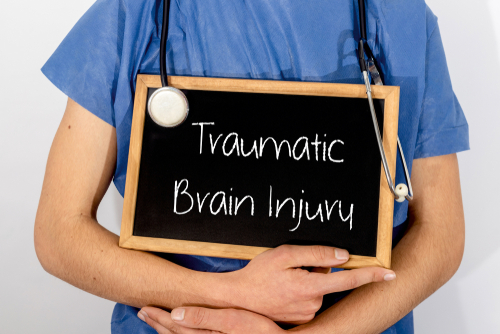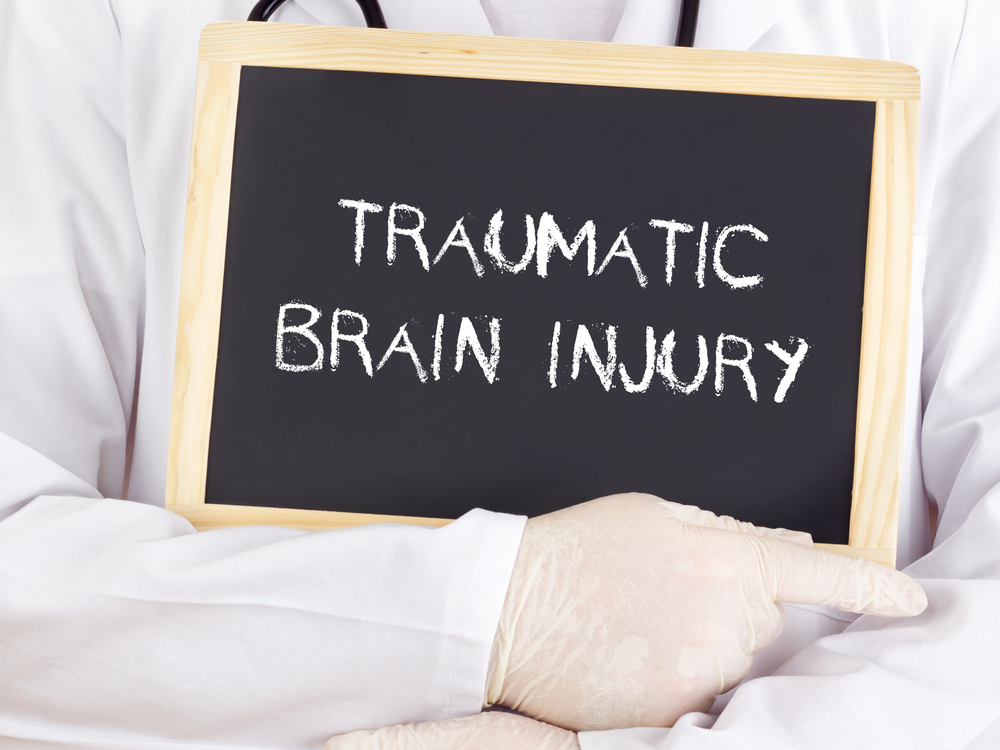There are few injuries worse than a permanent brain injury. Whether caused by a car accident, truck crash, or medical mistake a permanent brain injury can make living life normally almost impossible.
If you can prove that another party caused the brain injury, you could receive compensation in a personal injury lawsuit. But receiving compensation means proving that you or your loved one has a permanent brain injury and another party caused it. In this article, learn more about permanent brain injuries, and contact our experienced Schaumburg personal injury attorney for additional information and a consultation about your case.
What Is A Permanent Brain Injury?
A permanent brain injury, sometimes called a traumatic brain injury (TBI), is an injury that usually occurs from a violent jolt or blow to the head. In personal injury cases handled by our Schaumburg personal injury attorneys, permanent brain injuries often occur in motor vehicle, truck and motorcycle accidents, slip and fall accidents, sports collisions, explosive blasts, and medical malpractice cases. Severe brain injuries can cause many long-term or permanent problems that are costly.
If you or your relative have suffered a permanent brain injury, you could have expensive long-term care and rehabilitation requirements. When another person caused the accident and resulting injuries, one of our personal injury attorneys will work to prove negligence and hold the other party accountable.
How To Prove A Permanent Brain Injury
Whether our SJ Injury Law attorneys are negotiating a settlement with the at-fault insurance company or presenting the case to the jury, proving a permanent brain injury means starting at the beginning. Your attorney will need to show what happened in the accident that caused the injury and how and why. The attorney also will show how the accident caused your brain injury and how it affects your daily life.
For example, if you suffered a permanent brain injury in a car accident, documentation related to the mishap will be needed for legal proof. The police report can be vital because it may indicate how the crash happened, where the vehicles were located, how fast they were going, and their direction.
Our Schaumburg personal injury attorneys typically hire accident reconstruction experts to investigate the accident details and prove how it happened. The accident reconstruction experts may testify in court about the accident, how it happened, and who caused it. This testimony might prove that another driver did not yield and hit you head-on, causing your head to slam into the side window, which caused the brain injury.
Permanent Brain Injury Symptoms
There are many signs apparent when people have suffered a permanent brain injury. Some common symptoms are listed below, and your attorney will use your symptoms to prove you have a brain injury. But remember that only a doctor can diagnose that you have a brain injury:
- Dizziness and headaches
- Drowsiness and fatigue
- Mood swings that are out of character
- Loss of coordination
- Loss of consciousness
- Difficulty speaking or understanding speech
- Convulsions or seizures
- Nausea or vomiting
- Brain fog
It is essential to your case that your doctor document possible brain injury symptoms. This is why you should always seek medical treatment after any serious accident. In many cases, a seriously injured party may not get the medical attention they need. By the time they go to the ER, their injury has worsened, and their prognosis declines. Also, waiting to see a medical professional for a brain injury can limit your options when negotiating a settlement or filing a personal injury lawsuit.
Documentation And Medical Experts
The next part of proving a permanent brain injury is to rely on medical documents and experts to make the case. Your treating doctor, neurologist, and other medical professionals may be called to testify to prove your injury and how it is related to the accident.
There are many ways that your doctors can diagnose your permanent brain injury. Documents and medical testimony are essential to prove that a brain injury occurred. Your medical professionals may discuss the tests they used to diagnose you, how you responded, and how the injury affects you.
Your doctors also could use the Glasgow Coma Scale to measure various types of functioning. They include the ability to speak, open your eyes, and move. A doctor can rate the responses you give and provide a score. The lower your score, the more serious the injury, and the more compensation you might be entitled to in a personal injury lawsuit.
Your personal injury attorney will rely heavily on your doctors’ testimony to prove your permanent brain injury. Insurance companies know that TBI claims can be costly. They may attempt to reject your injury claim and say you do not have a severe brain injury. The other party’s insurance company may also bring in its medical experts to suggest you are not as injured as you claim.
By asking your doctor, neurologist, and other medical professionals to testify, your attorney will try to prove your injuries are severe and related to the accident. This testimony on your behalf can make or break the value of the case.
Medical Tests That Can Prove A Permanent Brain Injury
Your attorney may also call one of your medical professionals to discuss imaging and tests that show the severity of your brain injuries. These tests could include a:
- A CT scan uses X-rays to take a total picture of the brain. This test can show bleeding, bruised brain tissue, and other damage that may limit or even endanger your life.
- MRI uses large magnets and radio waves to make images that are even more detailed than a CT scan.
- Intracranial pressure monitoring uses a probe inside the skull to check the degree of brain swelling, which can be due to a permanent brain injury.
How A Permanent Brain Injury Is Rated
After your doctors discover your permanent brain injury, they will rate its severity. The range is from mild to severe, and the compensation you receive in a lawsuit can rise, the more serious the injury is:
Mild Brain Injury
A mild TBI usually causes short-term brain damage and is more treatable than other types. If you have a mild brain injury, you probably were not unconscious or out for a limited time. A mild TBI can lead to short-term memory loss that often lasts less than 24 hours.
Moderate Brain Injury
A moderate TBI leads to more brain damage than a mild brain injury. If you suffer a moderate TBI, you may have been unconscious for at least 30 minutes and up to 24 hours. You could have temporary memory loss that lasts up to seven days.
Severe Brain Injury
A severe TBI most damages the brain and can be permanent or fatal. If you or your loved one has a severe brain injury, you probably were unconscious for more than a day and your memory loss could be over a week.
Proving Negligence
It is one thing to prove that you have a permanent brain injury, but it is another to prove that someone else caused it. To win your personal injury case, a preponderance of the evidence must show that another person or entity caused the accident. Your attorney will use his skills and experience to prove negligence, which has four parts:
Duty of Care
Duty of care refers to our legal duty to avoid harming others. All people have a duty of care to obey the law and behave reasonably using ordinary care. If someone violates the law or engages in behavior that others know is dangerous, they have breached their duty of care.
Breach In Duty
A breach in the duty of care refers to the action or lack of action that broke the rules. For instance, if another party ran a red light in Chicago and slammed into your vehicle, they breached their duty of care to drive safely. Your attorney may rely on eyewitness testimony, traffic video, or black box data to prove the accident occurred.
Proximate Cause Of Injury
This means that your injuries are related to the breach of duty of care. If you suffered a brain injury after a car accident, your attorney will try to prove the link between the breach and your damages.
Damages
To obtain compensation in a brain injury lawsuit, it is not enough to prove that you are injured, and someone else caused it. You also must have suffered damages. Many personal injury lawsuits include medical bills, lost wages, loss of enjoyment of life, pain and suffering, and more. Someone with a permanent brain injury may have significant economic and non-economic damages. Your attorney will fight hard to prove the amount of damages you suffered to maximize your potential compensation.
Speak To A Schaumburg Personal Injury Lawyer
You may face years of medical bills and rehabilitation if you or a loved one suffers a brain injury. Plus, you or your loved one may never be the same again. However, a legal novice should not attempt to prove the brain injury and someone’s negligence. If you suffered a brain injury because of another party’s intentional or negligent act, you should fight for justice today by retaining a lawyer. Contact our Schaumburg personal injury attorney at SJ Injury Law at (847) 434-3555 to learn if your case could result in compensation.


